When invited to do so, young people enjoyed writing notes to themselves, but the actual postcard picture selection didn’t seem to mean as much to this age group as they may have done for older people who remembered the original Ladybird books. When audited, the Ladybird postcards scored lower for patient satisfaction with the choice and selection of postcards available and engagement with the YPDS team.
The Ladybird postcards have the title and design of an original book, but no inspirational message, so the DSN decided to design some new postcards herself, using readily available and free pictures from the internet. Buying ready-made ones was very expensive, and so not practical, and the choices available that could be related to diabetes were limited. Following discussion with other Tomorrow’s Leaders and the YPDS team, the idea of an inspirational message was added to the new pictures, and so the “Inspirational Postcards” were created.
Ten design ideas were printed on A4 paper, and service users and diabetes colleagues were asked for their thoughts on the designs and inspirational quotes. One colleague had a sister who worked for a design and print company, and she was asked to help design a further 10 postcards with new quotes that had come from other Tomorrow’s Leaders participants.
Of the initial 20 designs, ten were chosen as favourites by service users (Figure 1), and a hundred of each design were printed. Other members of the Tomorrow’s Leaders course were posted thirty postcards to try with their service users of all ages.
Postcard protocol
People with diabetes were directed to choose a postcard if they wanted to join in with the idea. The next step was to write something positive about themselves first, followed by a note to self and then by something cheerful or hopeful. Finally, the person chose a smiley face sticker/stamp and placed it on their card.
The person with diabetes and the healthcare professional both signed the card, which was then kept for two weeks and posted via hospital postal services in an envelope.
A video in which the author explains the postcards and how they work can be found here.
Innovation
Taking the original idea from Diabetes UK and updating it for young adults, who helped with the designs and quotation ideas, helped to create a new opportunity to work with service users. Moving the basic postcard reminder idea into a clinical area and using different inspirational messages and pictures allowed service users to choose a postcard that best reflected their mood and positive self-care aspirations while they were at clinic. Sharing the postcards with the Tomorrow’s Leaders group and Wessex Change Lab participants enabled a wider geographical and age-band spread for the inspirational postcards. The idea of writing a note to self is simple, yet it encouraged service users to find something positive they could do, either in their lives in general or regarding their diabetes specifically, that would be a step in the right direction. Being able to see the cheerful postcard design each day became a gentle nudge to keep going with that self-care.
Many young people no longer receive any physical post just for them, as most things happen online now, so getting their personal postcard in an envelope, so that nobody else at home could read it, helped to make it a more special item for them as individuals. The importance of this only became clear to the YPDS when the postcard scheme was audited.
Project planning
It was not clear whether there was a need for this initiative but, having tried it, many service users really liked the idea of writing themselves a note, and diabetes colleagues felt it helped them to stay connected to their patients between clinic visits, and so felt positive about the initiative too. Including service users in weekly clinics meant that postcard design changes could be made quite quickly.
Deciding how to assess the success of the scheme and what to audit took a few weeks to agree. The YPDS team found an audit design tool from another department in the Trust, and so permission to use it and change it slightly to fit a diabetes audit was sought. For the audit, the YPDS team agreed not to focus on clinical measures of HbA1c and blood glucose control, as the scheme was trying to help young people to help themselves between clinic visits. They chose what to write on their postcards, so sometimes the things written had nothing to do with their diabetes directly.
Audit methods
The original Ladybird book cover postcards were audited as a pilot for the audit tools, and the audit design was kept the same for the inspirational postcards. The audit questionnaire design was reviewed both by service users and by work colleagues. The YPDS team wanted a tool that was quick to complete, would fit on an A5 piece of paper and only use five questions, as anything longer was seen as excessive by service users. Following this review, two audit tools with slightly different questions but based on the same design were created: one for people with diabetes and one for healthcare professionals. The content of the questionnaires is outlined in Box 1. The audit ran for 4 months from early June to late September 2019.
Audit forms were sent with the individual postcards, along with a quick reminder to please complete the audit paper and post it back in a stamped, self-addressed envelope to their diabetes nurse. The audit forms were assessed from Poole, Huntingdon and Aylesbury.
Results
The inspirational postcards were sent to 120 people with diabetes, of whom 62 returned their survey form. Of these, 52 (83%) recommended or highly recommended using the postcards; 54 (87%) felt more engaged with their diabetes team; 53 (87%) were satisfied or very satisfied to receive their postcard; and 46 (74%) felt more motivated to engage with their own diabetes (Figure 2). Forty-three people (69%) were satisfied or very satisfied with the postcard selection.
In the healthcare professionals’ audit, there were nine replies from three sites. Of those, nine (100%) recommended or highly recommended the idea of using inspirational postcards with their patients with diabetes; eight (89%) agreed or strongly agreed that the postcard scheme allowed them to feel more engaged with their patients after they left clinic; eight (89%) felt positive or very positive about using the postcard support scheme in the future; seven (78%) felt sure or very sure the inspirational postcards could remind a person with diabetes to stay motivated with their condition; and eight (89%) recommended or highly recommended the postcard scheme to other healthcare professionals (Figure 3).
As well as audit replies, there were specific comments from people with diabetes. These included:
“If it wasn’t for your help I’d still be in a bad way and honestly don’t think I’d be here, thank you so much.”
“Thank you for sending my PC 🙂”
There were also comments from healthcare professionals:
“They helped me to engage with my patients and to raise mental health issues.”
“One of the patients was able to raise an erectile dysfunction problem he was experiencing.”
“I will continue to use the rest of the cards – thank you.”
The YPDS team saw an improvement in clinical outcomes like HbA1c for some people, and this was often where that person had written their note to self about more blood glucose testing or taking more insulin more often. It was lovely to see those individuals smiling more at the next clinic visit, knowing they could demonstrate that their HbA1c was coming down, and this was another self-inspired gentle nudge to keep going. Asking participants to put the postcard somewhere where they would see it every day was helpful, as it formed a gentle reminder to do the thing they wanted to do for themselves.
Young people going off to university in September 2019 often wrote two postcards, one to be posted before they left and the second to be posted in October/November, when they had been at university for a few weeks. These were well received too as they kept the student connected to the clinic between appointments.
Reflection on postcard design
The original 10 postcard designs had one card that was not chosen by any young person with diabetes (Figure 4a). The author also has type 1 diabetes and, following the audit, thought about why this one was not picked by anyone at any of the three sites. On reflection, if she had been asked to choose a postcard in her own diabetes clinic, she would not have picked this one either. Despite managing her own diabetes as well as she can most days, there are always going to be times when doing the best she can with what she’s got just isn’t good enough. Recognising that blood glucose levels fluctuate for all sorts of reasons, and sometimes for no reason at all, is useful and important to discuss with those who have diabetes.
As a result of this, the DSN decided to design a new tenth postcard to replace the unused one (Figure 4b), and from early 2020 the Poole YPDS team has added this postcard to its collection.
Sustainability
The original idea and postcards were offered to other Tomorrow’s Leaders and Wessex Change Lab participants to see if they worked in their own areas and age groups. They were also shared with adult and paediatric colleagues in Poole, Dorchester and Bournemouth, as these three hospitals were already working together on a Dorset-wide diabetes transition project.
In 2019, the YPDS nurse shared the inspirational postcards idea with the UK Medical Director of Eli Lilly, and they have agreed to design and use the idea for diabetes teams across the UK, as the audit results were so positive and the idea is simple and cost-effective. COVID-19 restrictions have delayed this for a few months, but it is hoped the new designs will be available in early 2021. The company also wishes to use the idea for other long-term conditions.
University Hospitals Dorset NHS Foundation Trust has recently agreed to extend the inspirational postcards idea to all wards and departments, and has bought 20000 new cards. This is to help and support people with other long- and short-term conditions to encourage positive self-care and engagement with their clinic and follow-up appointments.
Contact details
The author is happy to discuss this project and provide further information and advice. She can be contacted by telephone: 0300 019 8759; or by email: Jo.dalton@uhd.nhs.uk
In addition, the postcard designers, Grace Design House, are happy to pass the 10 postcard designs to others if they would like to buy them, or work together to make some new ones. They can be emailed at hello@gracedesignhouse.com
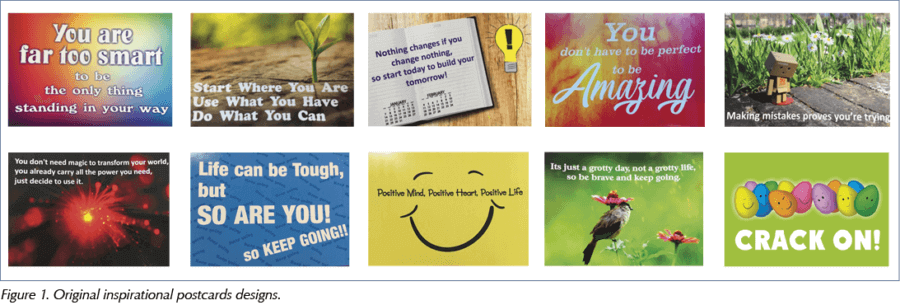
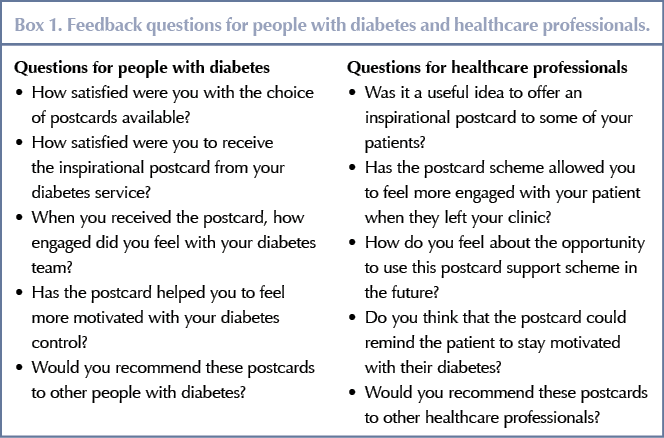
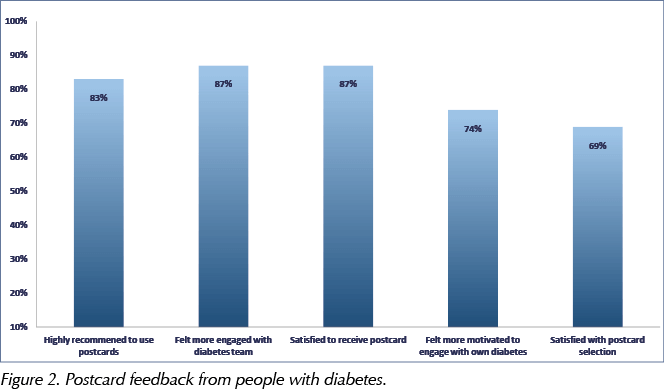
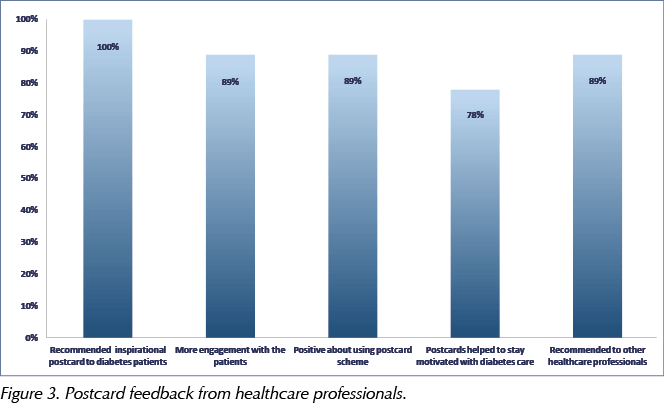
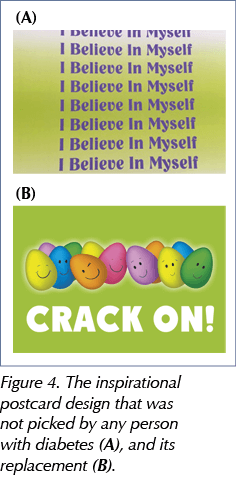
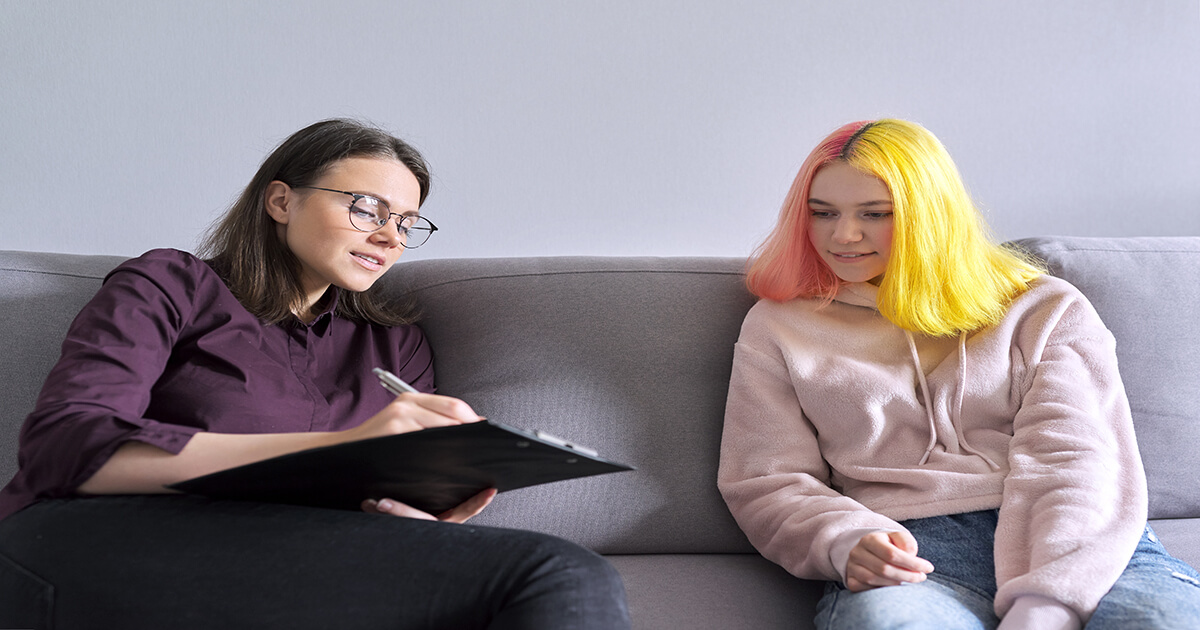
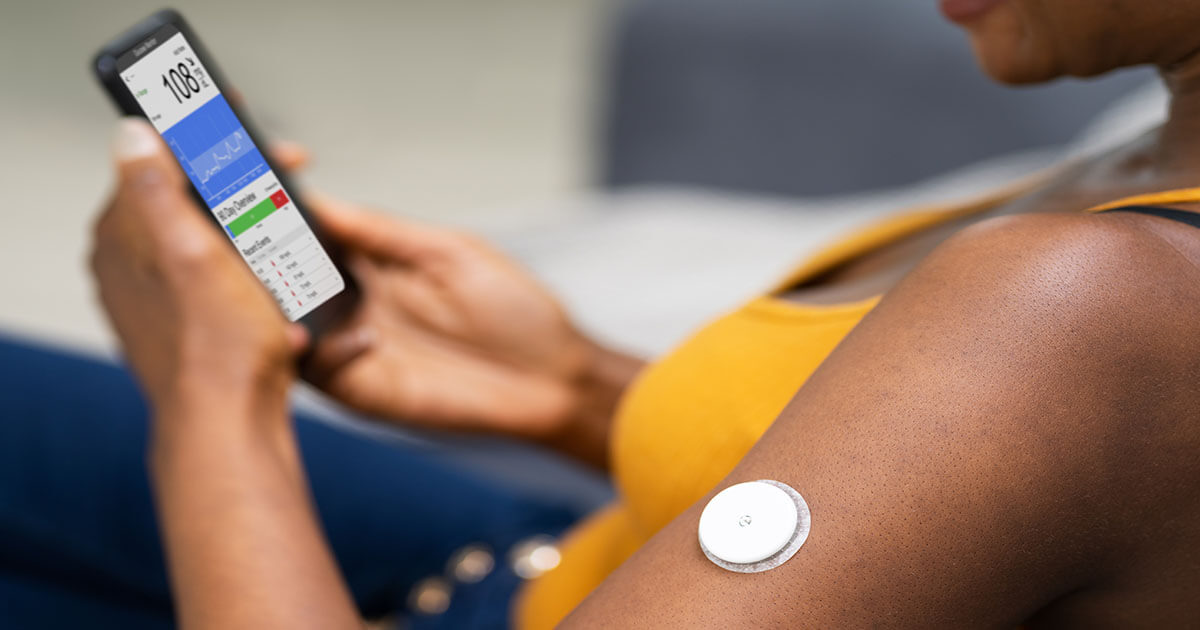



NHSEI National Clinical Lead for Diabetes in Children and Young People, Fulya Mehta, outlines the areas of focus for improving paediatric diabetes care.
16 Nov 2022